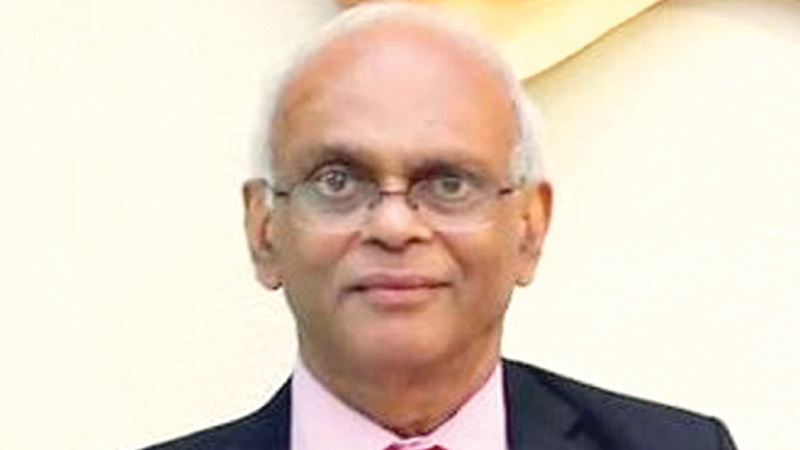Responding to the scaling down of global growth forecast for 2025 by the International Monetary Fund (IMF) former Central Bank Deputy Governor and well-know economist Dr. W.A. Wijewardena said even before the IMF scaled down its global growth forecast for the year the entire global community realised the ‘Trump Disorder’ referring to tariffs would result in a slowdown of the world economy.
“The tariffs having an adverse effect on the garments and the rubber industries, two of Sri Lanka’s major sectors of the economy would cause a slowdown of the economy,” Dr. Wijewardena said.
The garments and rubber industries have been running on thin profit margins and on top of it the huge tariffs would be a double whammy to both industries, he said.
Sharing similar sentiments of many trade experts, Dr. Wijewardena said even the universal tariff of 10% would have a major impact on all export sectors. Former Central Banker and reputed economist Dr. Roshan Anne Perera alluded to the same sentiments that the policy makers need to redesign and re-strategise policies to adopt to future global trade volatility.
The IMF scaling down global economic growth forecast last week stated that the sharp increase in tariffs and uncertainty will lead to a “significant slowdown” in global growth.
The Fund gave the biggest downgrade in its forecast for US economic growth for this year among advanced economies due to uncertainty caused by trade tariffs.
Growth is now expected to be 1.8% this year, down from the IMF’s estimate of 2.7% for the US in January.
Following an assessment of Sri Lanka’s economic performance under the Extended Fund Facility program the global lender noted that global uncertainty remains elevated and is contributing to financial market volatility. The government remains committed to program objectives and implementation is strong and commendable, but more time is needed to assess the implications for Sri Lanka of the external shock.
The Manila based Asian Development Bank in its flagship economic publication, the ‘Asian Development Outlook (ADO) April 2025’, forecasts Sri Lanka’s recovery to continue at a moderate growth of 3.9% in 2025 and 3.4% in 2026 following the strong rebound in 2024.
Economies in developing Asia and the Pacific are projected to grow 4.9% this year, down from 5.0% last year, according to the latest forecast by the Bank.
However, the IMF has predicted UK economic growth will be stronger than Germany, France, and Italy.
Inflation in the UK, however, will be the highest in the world’s advanced economies, at 3.1% this year, largely due to higher bills, including for energy and water.
The predictions come as top economic policymakers gather in Washington for the spring meetings of the IMF and World Bank.
IMF chief economist Pierre-Olivier Gourinchas said the global economy “still bears significant scars” from the “severe shocks of the past four years”.
On Tuesday, US President Donald Trump said he had “no intention of firing” Federal Reserve chair Jerome Powell after heavily criticising him.
Concerns that Trump may try to sack Powell sparked a sell-off in markets in recent days.
Trump has made a flurry of announcements on tariffs this year – taxes charged on goods brought into the US from other countries.
In a growing trade war, the US has placed tariffs of up to 145% on Chinese goods, while China has hit back with 125% levies on US products.
The US has also introduced a 10% tax rate on goods from the vast majority of other countries, while pausing much higher rates for dozens of nations for 90 days.
Trump says tariffs will encourage US consumers to buy more American-made goods, increase the amount of tax raised, and lead to huge levels of investment in the country.
However, the IMF highlighted the potential negative impact on global trade given that modern supply chains are so interlinked.
Uncertainty around trade policy was a “major factor” behind the growth downgrades, Gourinchas said.




